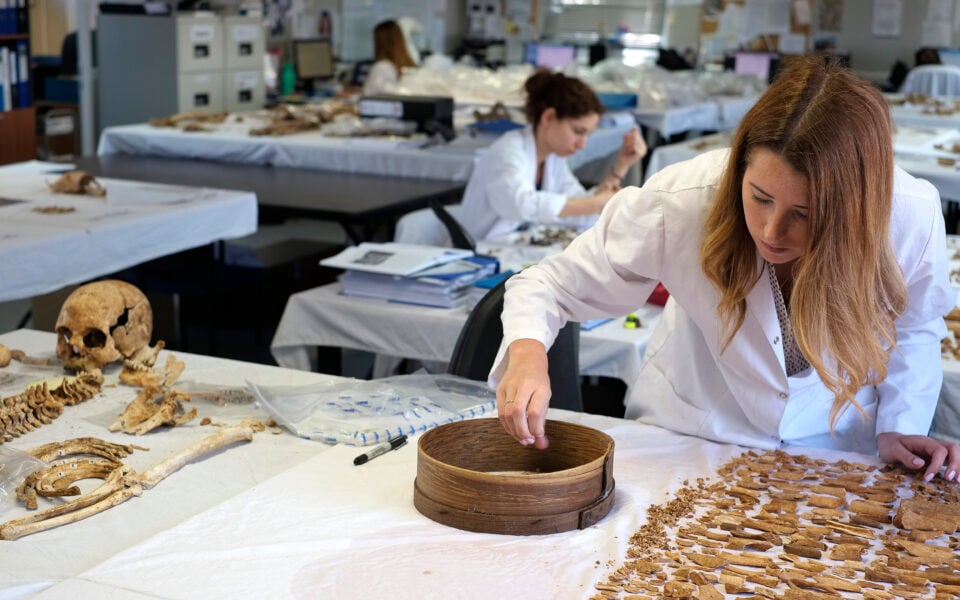
An anthropologist classifies the remains of missing persons at the lab of Cyprus Missing Persons (CMP) inside the UN buffer zone in the divided capital of Nicosia, in Cyprus, in a file photo. [Petros Karadjias/AP]
A UN-backed commission investigating mass disappearances in Cyprus is deploying AI and ground-penetrating radars to expedite chances of finding the remains of people who vanished in past conflict.
The Committee on Missing Persons (CMP) leads a team of archaeologists, anthropologists and geneticists to help ascertain the fate of 2,002 people who went missing during inter-ethnic strife in the 1960s and a Turkish invasion that followed a Greek-inspired coup in 1974. Many were killed and buried in unmarked graves across the island.
Relying heavily on witnesses who are assured anonymity, the exhumation and identification of victims have waned in recent years, in part because of discrepancies in witness accounts, the passage of time and rapidly changing landscapes.
“We plan to enhance our capacities to find answers through new technologies,” said Pierre Gentile, the UN representative on the CMP, which also includes a Greek Cypriot and a Turkish Cypriot representative.
Gentile said the CMP would use artificial intelligence to scour digitalized archives for new lines of inquiry and would consider further use of ground-penetrating radars to help find burial areas.
Established in 1981, the CMP started looking for mass graves around 2006. By the end of June 2025 it had located and exhumed 1,707 individuals, with 1,270 remains returned to their families for burial by May 2025.
Although missing persons remain one of the most sensitive issues stemming from Cyprus’s division, it is also one of the few areas where Greek and Turkish Cypriots work together on a common humanitarian goal.
“It is a very delicate humanitarian issue and the work we are doing is holy,” said Hakki Muftuzade, the Turkish Cypriot CMP representative. “We are fully aware of the duty we have to fulfil,” he said. [Reuters]